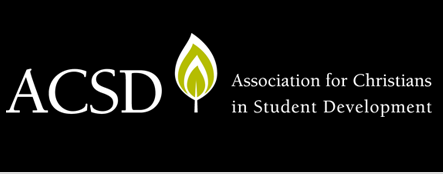Home > Other Collections > ACSD > Growth > No. 2 (2002)
Abstract
With the shift from an industry-based to a knowledge-based society, American higher education, and student affairs in particular, is under increasing pressure to prove its role in facilitating students' learning. The Student Learning Imperative (ACPA, 1994) and the Principles of Good Practice for Student Affairs (ACPA & NASPA, 1997) provided a professionally supported foundation for the new learning philosophy within student life.
The strong religious mission and the ministry model of student development in Christian higher education may affect the degree to which student-centered learning is incorporated. This study examined the extent to which chief student affairs officers at institutions in the Council for Christian Colleges and Universities (CCCU) reported their student affairs divisions had integrated principles of student learning.
This quantitative study was based on the survey results of 216 chief student affairs officers' (CSAOs) at United States' colleges and universities whose enrollments were between 500 and 3,000 students. Fifty-eight percent of the CSAOs returned the 54-item Survey of Student Learning Principles, based on the seven Principles of Good Practice for Student Affairs.
Using repeated-measures analysis of variance, student affairs divisions at Christian universities were found, in comparison to non-Christian universities, to be more successful at helping students develop coherent values and less successful at building inclusive communities. The strong emphasis on moral education from both faculty and student affairs staff at Christian colleges may be one reason for the emphasis on developing values. The predominantly white demographics of Christian colleges may be a factor in their failure to make more efforts to include underrepresented groups. Student affairs divisions at both CCCU and non-CCCU institutions reported doing poorly at systematically assessing to improve performance and effectively using resources to meet institutional goals. Dr.
Recommended Citation
Doyle, Jeff
(2002)
"Student Affairs Divisions' Incorporation of Student Learning Principles at CCCU versus Non-CCCU Institutions,"
Growth: The Journal of the Association for Christians in Student Development: Vol. 2:
No.
2, Article 7.
Available at:
https://pillars.taylor.edu/acsd_growth/vol2/iss2/7
Included in
Educational Assessment, Evaluation, and Research Commons, Educational Leadership Commons, Higher Education Commons, Higher Education Administration Commons, Teacher Education and Professional Development Commons

